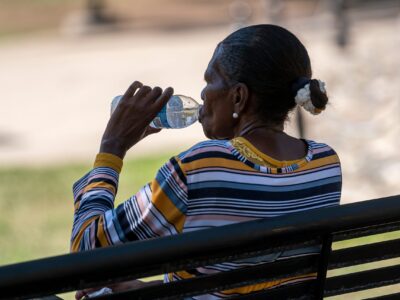Being kind to others is critical to fostering healthy friendships and romantic relationships. Did you know that spreading goodwill can help with physical wellness, too? With World Kindness Day on Nov. 13 kicking off World Kindness Week, let’s go over some of the health benefits of benevolence.
Kindness is good for your body. Receiving compliments or hearing nice words can increase a person’s self-esteem, empathy, and compassion and improve one’s mood immensely. These synapses in the brain can help lower blood pressure and cortisol levels, the hormone that impacts stress. By giving and receiving kindness, a person can live a longer, healthier life.
Regarding your mental health, kindness can boost serotonin and dopamine, the neurotransmitters that give us feelings of satisfaction and well-being. The pleasure and reward centers light up when people are kind to one another. Being kind also releases endorphins, which help eliminate pain levels naturally.
Acts of kindness also create an emotional warmth that releases oxytocin in our bodies. Oxytocin releases nitric oxide into the bloodstream, a chemical reaction that dilates blood vessels, causing lower blood pressure.
This process has earned oxytocin the nickname the “cardioprotective” hormone. Goodwill protects the heart from high blood pressure and the potential of a heart attack or stroke.
Being kind to oneself is also vital for a better well-being. The more self-love and gratitude you show, the greater chances someone will reciprocate them back. Negativity often causes us to unravel in unhealthy ways, and the more critical people are of themselves, the more likely they will develop unbeneficial habits. That’s why it is important to practice gratitude and give grace. Take action by asking yourself how you can be kind to someone every day. Do small acts of generosity like favors or donate to charity.
The good news is that kindness is something that everyone can learn. Dr. Richard Davidson of the University of Wisconsin has written extensively about its benefits to the human condition. He says you can train yourself the same way you train your body to be stronger. By practicing kindness, you will learn how to be more compassionate. Davidson’s work has earned significant honors, including being one of Time Magazine’s Most Influential People in 2006.
Although it might seem obvious, kindness actually boosts people’s happiness levels. A 2010 study by Harvard Business School surveyed people in 136 countries and found that those who expressed altruism were generally happier than those who didn’t.
The study primarily focused on those who donated money or were generous financially. The more benevolent a person is, the more fulfilled an individual will feel. Depressive thoughts will also be less prominent when you conduct more kind acts.
This World Kindness Day and Week, take time to evaluate yourself and others around you. Maybe volunteer at a local soup kitchen or animal shelter, or even just hug your pet, mom, dad, sister, brother, or friend. Remember to be kind to others and yourself — your body and mind will thank you.





